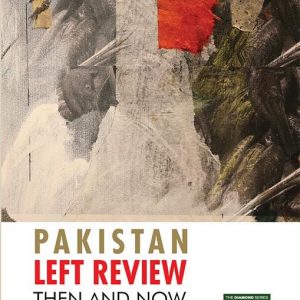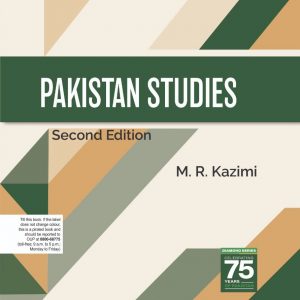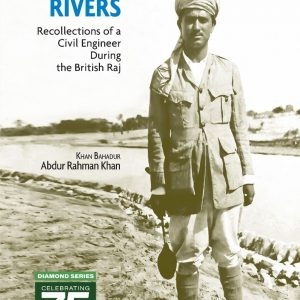Showing all 9 results
-
Sale!

A History of the Baloch and Balochistan
$85.00A History of the Baloch and Balochistan
This is an abridged English translation of an eight-volume book in Urdu, written by a direct descendant of the Khan of Kalat. The book records BalochistanÕs ancient history, the Islamic Empire, Mongol conquests, the advent of the British, and the post-Partition period. It attempts to generate a better understanding of the Baloch through historical retrospection, dispelling the anachronistic characterization of the land and its people.
-
Sale!

A History of the Judiciary in Pakistan Second Edition By Hamid Khan
$75.00A History of the Judiciary in Pakistan Second Edition
This book undertakes a comprehensive study of Pakistan’s judicial history since Independence. It includes detailed discussion of the act, lives, and judgments of significant Pakistani judges, with their continuing effects on the life of the nation.
One of the three primary organs of the state, the judiciary in Pakistan has attained a particularly prominent profile over the last decade and a half. The dramatic restoration to office of the Chief Justice, following the celebrated Lawyers’ Movement of 2007; the exercise of suo moto jurisdiction by the Supreme Court in matters of enforcement of fundamental rights; the increasingly prominent role the Judiciary is playing in the resolution of conflicts: these and other developments have further enhanced interest in the judiciary, which has become a focal point for people’s aspirations and hopes.
This is the second edition of the book; the first edition was published in 2016. This book will be of special interest to lawyers, judges, law professors, and to students of law, political science, and history, as well as general readers. -
Sale!
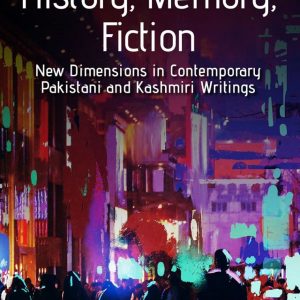
History, Memory, Fiction By David Waterman
$45.00History, Memory, Fiction
New Dimensions in Contemporary Pakistani and Kashmiri WritingsHistory, Memory, Fiction proposes an examination of several contemporary novels and memoirs of leading Pakistani and Kashmiri writers, considering them as historical fiction, in other words as works that are based on real-world facts, but as fiction are able to go further in creating what have been called ‘possible worlds’, ultimately creating a plausible story that might well be a true story. By blurring the frontier between history and fiction, unconstrained by concerns of referential ‘truth’, these novels and memoirs are able to provide us with fresh insights and moral orientation while suggesting that the past—which is not the same as history—must be given meaning in our present if we wish to create better possible futures. Thus, these writers are engaged in active social critique, providing readers with a broader perspective of historical consciousness.
-
Sale!
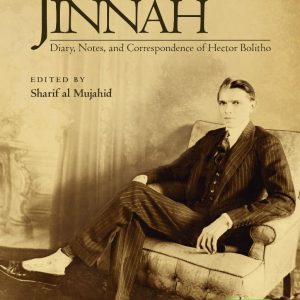
In Quest of Jinnah By Sharif al Mujahid
$45.00In Quest of Jinnah
Diary, Notes, and Correspondence of Hector BolithoThis book is a compilation of previously unpublished and expunged portions of Jinnah: Creator of Pakistan by Hector Bolitho, the first biography of the Quaid-i-Azam Mohammad Ali Jinnah, and Bolitho’s own diary and notes, and correspondence with functionaries of the Government of Pakistan and highly placed individuals in Britain, India,
and Pakistan who had known Jinnah personally. The book also includes the English and American reviews of Bolitho’s celebrated and influential biography. The volume is a treasure trove of oral history concerning Pakistan’s founding father. Bolitho’s interviews with people who had known Jinnah personally in various capacities, and at various stages of his life, recorded within four to five years of his death, have preserved for posterity a good deal of information and historically important material that would have otherwise been lost for ever. This contribution is, in fact, more valuable and has greater significance than Bolitho’s published biography. These texts comprise material that the author was not allowed to include in his biography, but is presented in this volume for the benefit of scholars and interested readers. In Quest of Jinnah provides a three-dimensional view of the original published version, and offers fresh and authentic insights into the personality and politics of Mohammad Ali Jinnah. -
Sale!
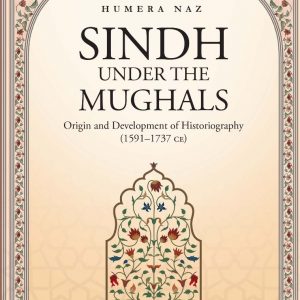
Sindh under the Mughals By Humera Naz
$75.00Sindh under the Mughals
Origin and Development of Historiography (1591–1737 CE)[This] book is a major contribution to the history of Sindh, and consequently to that of Pakistan and South Asia. Beyond the excellence of the research, it must be emphasized that, if the reign of the Mughal rulers has been studied in detail, it is mainly in the imperial context, namely from the centres of power they had created and developed in northern India … Dr Naz has shifted the focus, producing an innovative perspective on how the Mughals exercised power in territories relatively far from the imperial centres, but above all she reveals the leading role they played in developing historiography through the spread of several literary genres. Thus, Dr Naz’s work renews the field of Mughal studies, but at the same time, it is much more than that.
Michel Boivin
Director, Centre for South Asian Studies, CNRS-EHESS, Paris -
Sale!
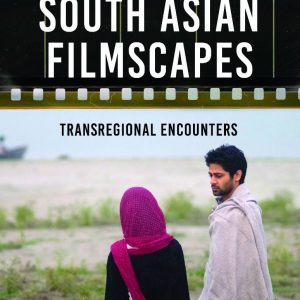
South Asian Filmscapes By Elora Halim Chowdhury and Esha Niyogi De
$75.00South Asian Filmscapes
In South Asia, massive anticolonial movements in the twentieth century created nation-states and reset national borders, forming the basis for emerging film cultures. Following the 1947 Partition of India and Pakistan and the 1971 Bangladesh Liberation War, new national cinemas promoted and reinforced prevailing hierarches of identity and belonging. At the same time, industrial and independent cinemas contributed to porous and hybrid film cultures, reflecting the intertwining of South Asian histories and their reciprocal cultural influences.
South Asian Filmscapes excavates these complex politics and poetics of bordered identity through selected histories of cinema in South Asia. Several essays reveal how fixed notions of national identity have been destabilized by the cross-border mobility of filmed arts and practitioners, while others interrogate how filmic politics intersect with discourses of nationalism, sexuality and gender, religion, and language. Together, they offer a fluid approach to the multiple histories and encounters that conjure ‘South Asia’ as a geographic and political entity through a cinematic imagination.

